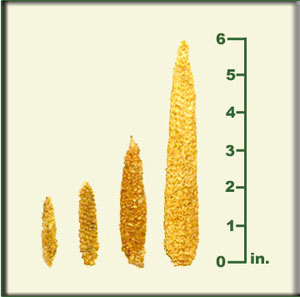Interesting article about how a certain pest is adapting to genetically modified corn created by Monsanto. The little critter has developed resistance to the pesticide engineered into the plant:
What the rootworm’s evolved resistance to Monsanto’s crop says about the future of genetically modified agriculture depends largely on your opinion of GM crops. Those who are fundamentally opposed to the practice of crop biotechnology as a whole — i.e., the individuals quick to decry GM crops as “Frankenfood” that will spell the demise of the human race — are probably liable to assume a position of “I told you so.”
There’s a whole group of people who are convinced GMO foodstuffs are evil or harmful. I’m sure it’s possible to produce a variant that’s bad for you or outright poisonous in some way, although that would sure defeat the profit motive purpose. But on the modification point, aren’t all plants genetically modified? Descent with modification?
Plants and their ancestors have been modified since the end of the Hadean eon roughly 3.8 billion years ago. Over billions of years a sort of bacterial collective developed that uses sunlight to make simple sugars. Thru the Cambrian, past extinctions and meteors and who knows what else, the plants evolved. Then, we came along and intensely modified the shit out of a few of them for millennia until most can no longer reproduce or survive in the wild without our constant nursing.
They’ve already been about as genetically modified as they can be. Hard to image how anything Monsanto does is somehow more modification than all that. If companies were cooking up corn that commits genocide, if they are engineering a corn-stalk that chows down on raw human meat while playing chess, then yeah, there might be cause for concern. But until something like that happens, I have to admit, I just don’t get the skepticism about GMO food.
Update 11:10 AM CDT: Some great comments below, including this one by Kewball, “I think I can speak for the agriculture producers: it’s not about the scary genetic DNA hoodoo, it’s about the damn patents. That’s a real and growing *cough* problem as I’m sure you well know. All it takes is some wild oat pollen floating about the county and before you know it, your field of organic, artisan cotton is “owned” by Monsanto and the burden of proof is on you to show that you did not steal seeds from the Corporationperson.”



